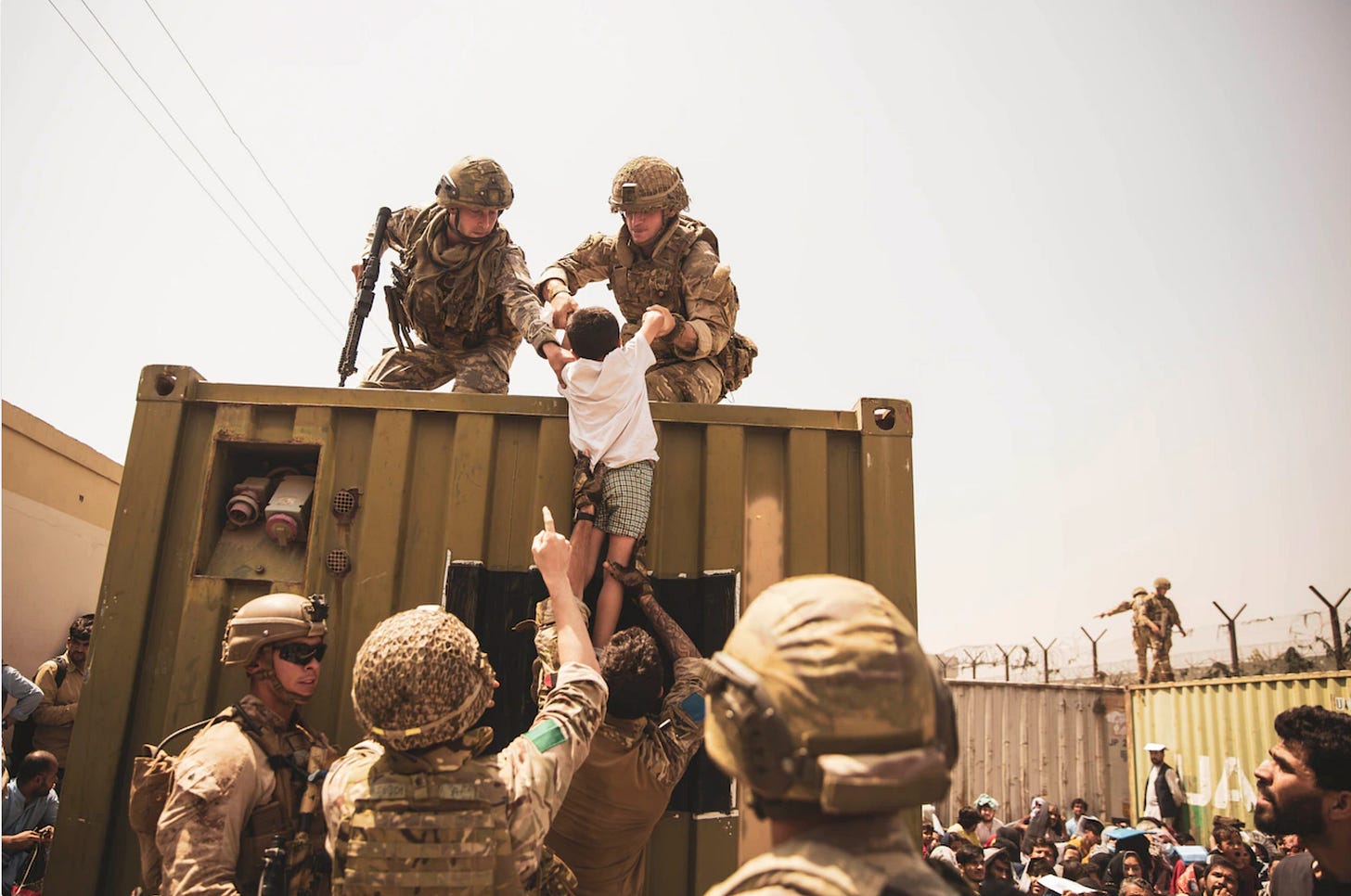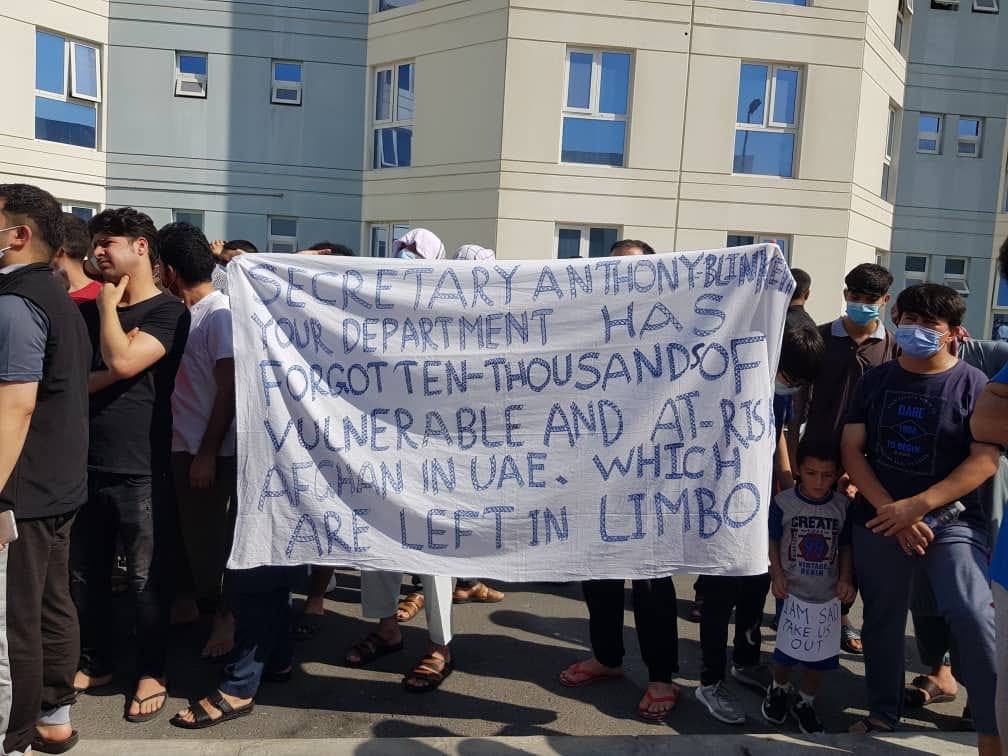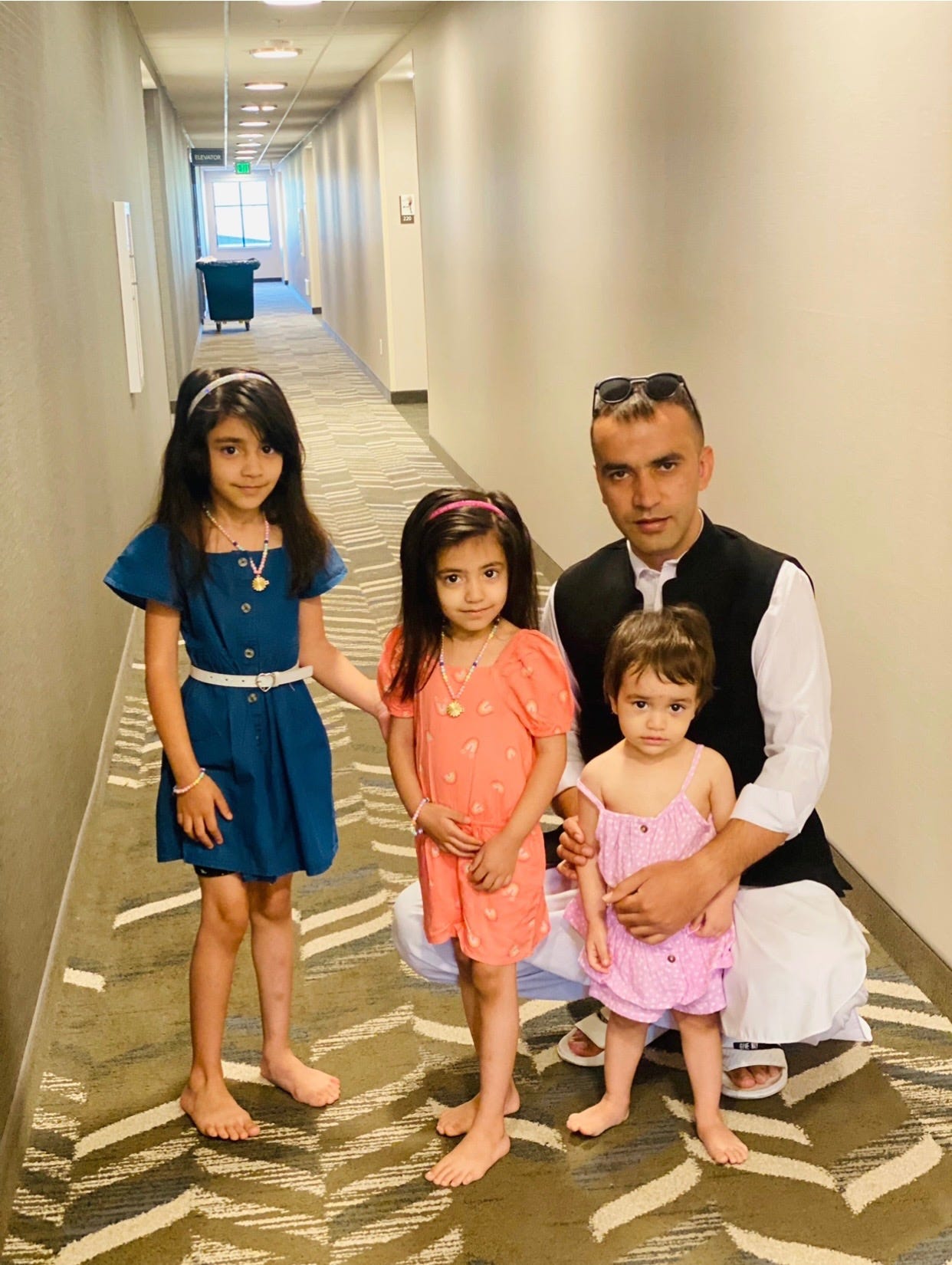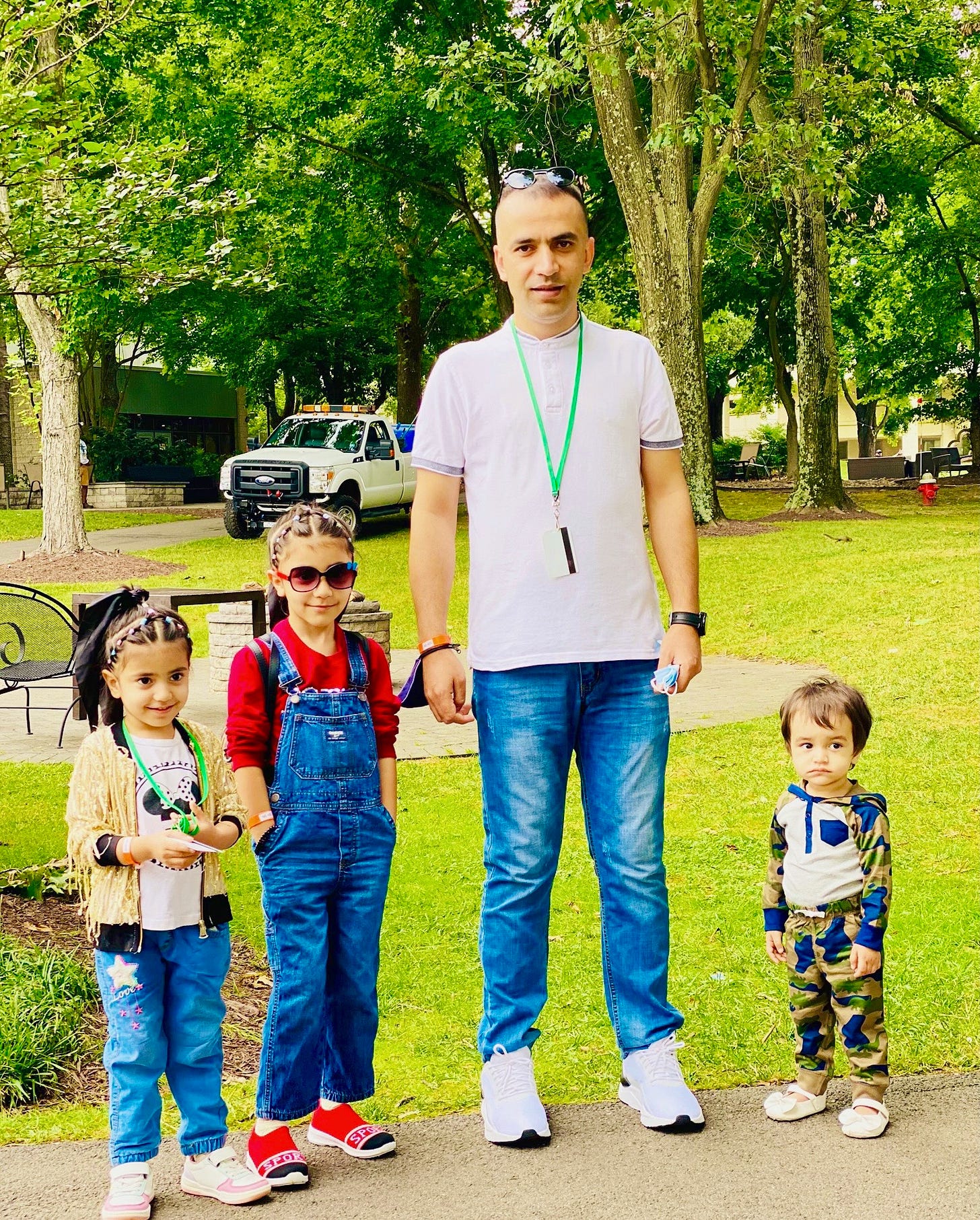From the Kabul Airlift to the Pacific Northwest: One Afghan Family's Arduous Journey
After fleeing the Taliban and spending months in a refugee camp, the Noori family is happy to have arrived in North Central Washington

Reshad Ahmad Noori and his family arrived in Wenatchee, Washington on July 5, but their harrowing journey started in August 2021 in Kabul, Afghanistan.
Noori, originally from the Parwan Province, about an hour by car from Kabul, worked on the Army base at the Kabul Airport. During the decade he was employed by NATO and US forces on base, he served mostly in retail positions, selling clothes from brands like Hollister to soldiers.
He was also a laundry supervisor, a customer service assistant, and an engraving designer for a time – all positions far removed from frontline combat.
But that didn’t matter when the US decided to pull out of the country, the Taliban returned to Kabul, and the evacuation began.
Noori and his wife Fatima have three daughters, Mehrin, 6, Maryan, 4, and Behtrin, who is 19 months old.
Even though he had clearance to leave due to his long employment on base, he said the situation at the Kabul airport was too dangerous, and his first instinct was against taking his family there.
But when the Taliban asked to see him, he had no choice but to get his family out of the country.
The reason he was singled out?
His car.
He drove a Ford – and not just any Ford. It was the same model the US provided to Afghan police forces, Noori said. The vehicle was sitting on the street outside his apartment building when it caught the eye of Taliban forces.
“The watchman call me,” he said. “‘Here are some people from the new government, Taliban. They want to ask for the owner of the car.’”
His father told him not to go. Instead, his older brother went to speak with the Taliban.
His brother explained that Noori bought it from an American company and pointed out the license plate was private and not the same style or color as the Afghan police plates.
“My father didn’t let me to go, because they say it’s not safe for you to go and speak with them if they know that you was working somewhere in NATO or for Americans, it can make you trouble,” he said. “And I didn’t and they took the car.”
Noori and his family didn’t go back to their building. They went to his father’s home outside of Kabul. They burned all the papers that connected him with NATO, other than the few he needed to have on hand in order to leave the country and prepared to evacuate.
Two Nights Trying To Get Out

The family spent two nights caught in a crowd between US and NATO forces defending the wall surrounding the Kabul Airport and the Taliban on the other.
“It was a very bad situation,” he said. “I don’t know, it’s not a gun, but there’s a kind of gun, that it’s making kind of like a bullet sound. But it’s giving fire just to scare the people to not approach to the wall. So from that side US Army and other members of NATO who was firing to not make people crowd behind the wall, and from the other side – Taliban.”
He said the children were terrified, screaming and crying.
“As a father I was, hm, I don’t know enough English to explain,” he said. “But it was really, really scary time.”
He told them to pull their scarves up, to cover their faces, and huddle together. After a night of waiting like that they were turned away and told to come back the next night.
So they did, and they caught a break.
Noori said a metal net was pulled up in a part of the wall they were standing nearby and they were allowed inside. He spoke with soldiers who asked them for identification and the name of his contact.
“They asked me, ‘who called you to come here?’ And I told them it was Alex,” he said. “He asked me about my name and he had my picture and my daughter’s picture.”
They were let through and at about 2 am they boarded a charter flight (there wasn’t any room on any of the US C-130s) and left their home.
The Camp: Nine Months In Limbo

They landed in Abu Dhabi, in the United Arab Emirates, and were placed in a refugee camp. There they languished in a tiny one-room shelter for two months, unable to leave the structure even to take short walks.
A COVID protocol was the reason they were given for the strict confinement. He said the people in the camp called it “Abu Dhabi jail.”
“Between Afghanistan and United States we stay nine months in Abu Dhabi,” Reshad said.
Doug Head, a volunteer with the Wenatchee Valley Afghan Support Circle, said he doesn’t think most Americans understand what refugees like Noori and his family were forced to endure throughout the process of making it to the US.
“One of the remarkable things about this process is – I don’t think we as Americans knew that nine and a half months later there were still people in these camps,” he said.
It was only after refugees in the camp started staging protests about the length and conditions of their internment that caught the attention of US officials that things changed.
“There was 12,000 people and on June first they decide they would take out seven thousand people to the United States,” he said. “Then they bring us to Virginia.”
The family spent most of June in Virginia before getting connected with the Wenatchee Valley Afghan Support Circle.
When he got the call from the Wenatchee-based group, Noori said he would be happy to go to Washington state. A childhood friend of his lives in Seattle, and it’s the same country. How different could Washington be from Virginia?
“I sign the paper and then after four or five days they call me and they told me that 'There is a team of the sponsor circle in Washington state, Wenatchee,” Noori said. “‘So they would like to take the responsibility to call you to that city. Are you ready to go?’ And I said, ‘This is the first time in the United States, so all United States must be the same.’”
He said the Wenatchee Valley is much different from Virginia but that the river and mountains remind him of home.
“When I came here I see the mountains, river, green places – same like Afghanistan,” he said. “I love it and I want to stay here. I am very happy, very glad to be here.”
The Next Chapter
Now Noori, his wife, and their three young daughters are living out of a two-room hotel unit in Wenatchee, and preparing to move into an apartment in August.
Head said the apartment will not be unfurnished, and the family could use furniture and financial support. That’s why the Wenatchee Valley Afghan Support Circle set up a GoFundMe campaign for the family.
If you would like to help support the Noori family, you can find a link to that fundraiser here.
They are also working on their English skills; the girls are attending a day camp at the Wenatchee Valley Museum & Cultural Center and getting ready to attend public school in the fall.
I will keep in touch with the Noori family and provide updates on their progress from time to time.





